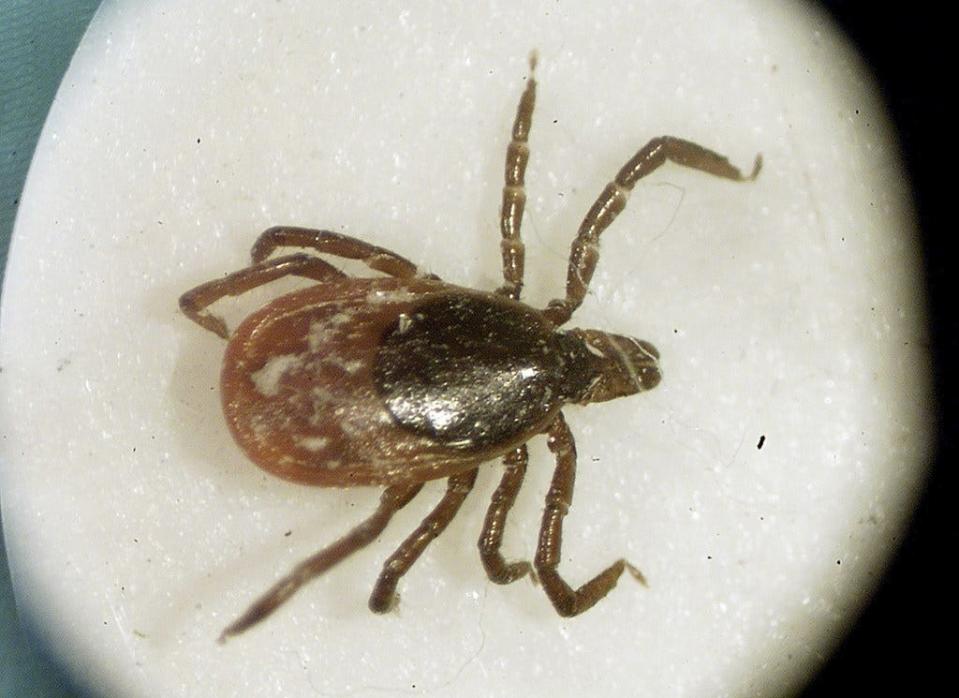This winter was warm. Does that mean there will be more ticks in RI this year?
Good news: A warmer-than-normal winter does not mean more blacklegged ticks than normal.
“The severity or mildness of winter weather doesn’t appear to predict spring and summer tick risk,” said University of Rhode Island Professor of Entomology Dr. Thomas Mather in a blog post.
Bad news: It does mean that the tick season will likely start a little earlier than usual, and it does mean adult ticks were active during the winter months.
“It’s never too late (or early) to be ready for ticks,” Mather wrote.
How the winter impacts ticks
The first thing to establish is blacklegged ticks, the ones that carry Lyme disease, don’t die in the winter.
What actually happens, Mather explained, is that when temperatures get cold the tick activity slows down, as it essentially becomes too cold for them to move their leg muscles.
“The temperatures around here tend to get cold enough to slow their activity considerably a bit after Thanksgiving, so it seems to people the tick season is over,” Mather wrote in an email.

But if there are warm days, those adult stages ticks are free to move around and look for a host — like you or your dog.
Since the ticks weren’t dying in the cold weather – just immobilized – the temperature isn’t the key factor determining the quantity of ticks.
“This year's weird, warm winter has allowed some of these left-over adult ticks to be active earlier than if the temperatures were colder, but I don't think there will be more ticks than after a colder winter, but they could become active a bit sooner,” Mather said.
What does impact tick populations?
The factor that has the most impact on the number of ticks is the weather in the early summer.
In mid-May, blacklegged ticks are in the “nymph stage.” At this point, they’re tiny, just about the size of a poppy seed, and starting their perpetual quest for blood.
In the woods of RI:Are centuries-old trees at risk in RI? Meet the man on a mission to protect them.
Mather said one study found that at this point there are about the same number of ticks every year, and it’s the June weather patterns that determine how many of them survive. If there are enough days in June when it is dry enough for the ticks to dry out in the shade, also called desiccating, then the tick and Lyme disease risk drops.
Tips for protecting yourself from ticks
Being tick aware is key to protecting yourself from tick bites and diseases ticks carry, such as Lyme and babesiosis. Babesiosis, which is also carried by the blacklegged deer tick, infects red blood cells.
Ticks in RI:Lyme disease is devastating for humans, but URI lab is asking: Does it help ticks thrive?
Here are some tips:
Perform daily tick checks.
Turn your clothing into tick-repellent clothing by using a tick-repellent on them.
Use a tick protection product on your pets.
For more information, go to Mather’s website https://web.uri.edu/tickencounter/ticksmart/
This article originally appeared on The Providence Journal: Will there be more tick, Lyme risk in RI this year after warm winter

